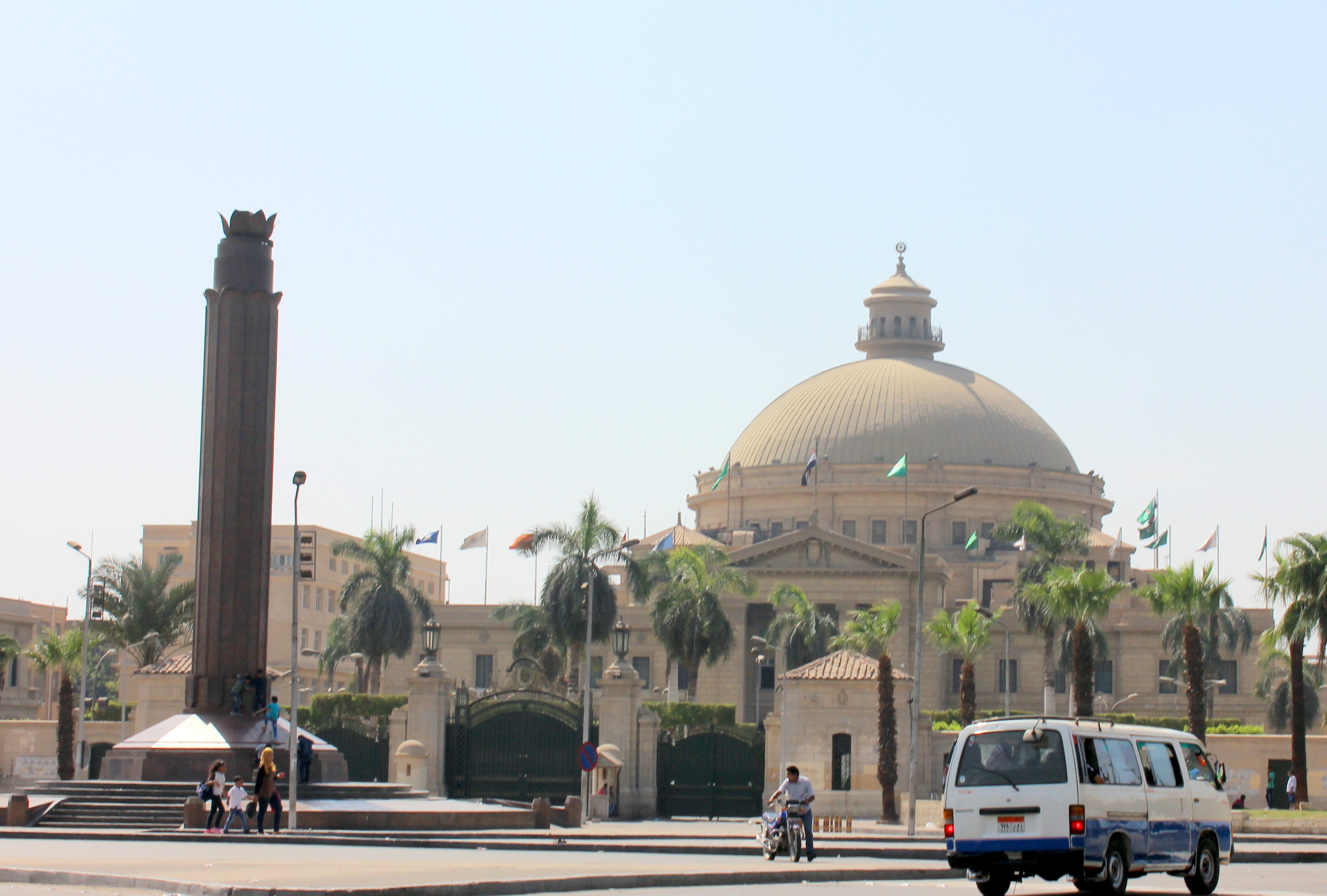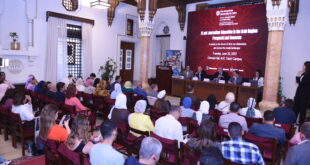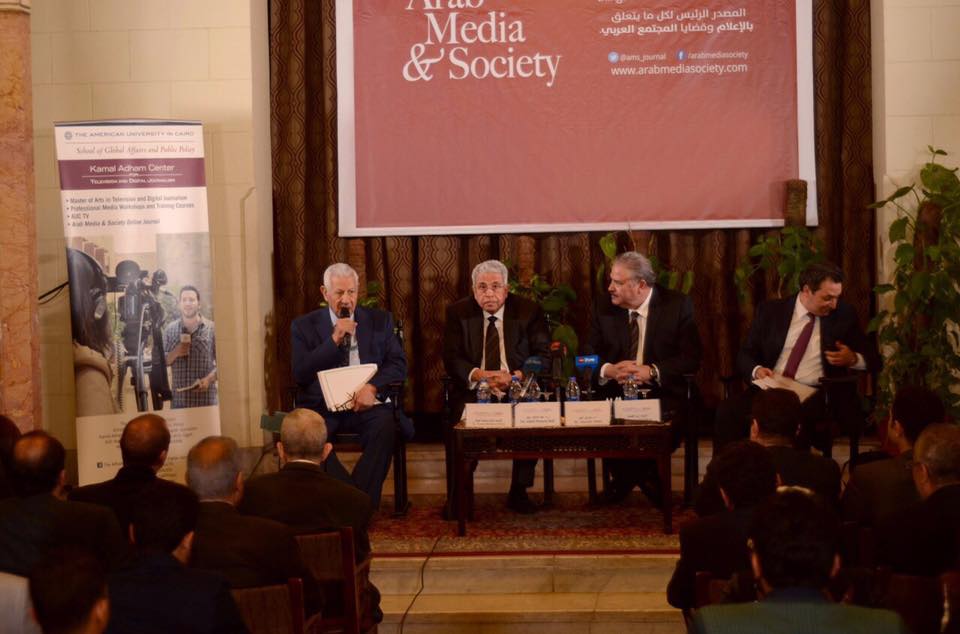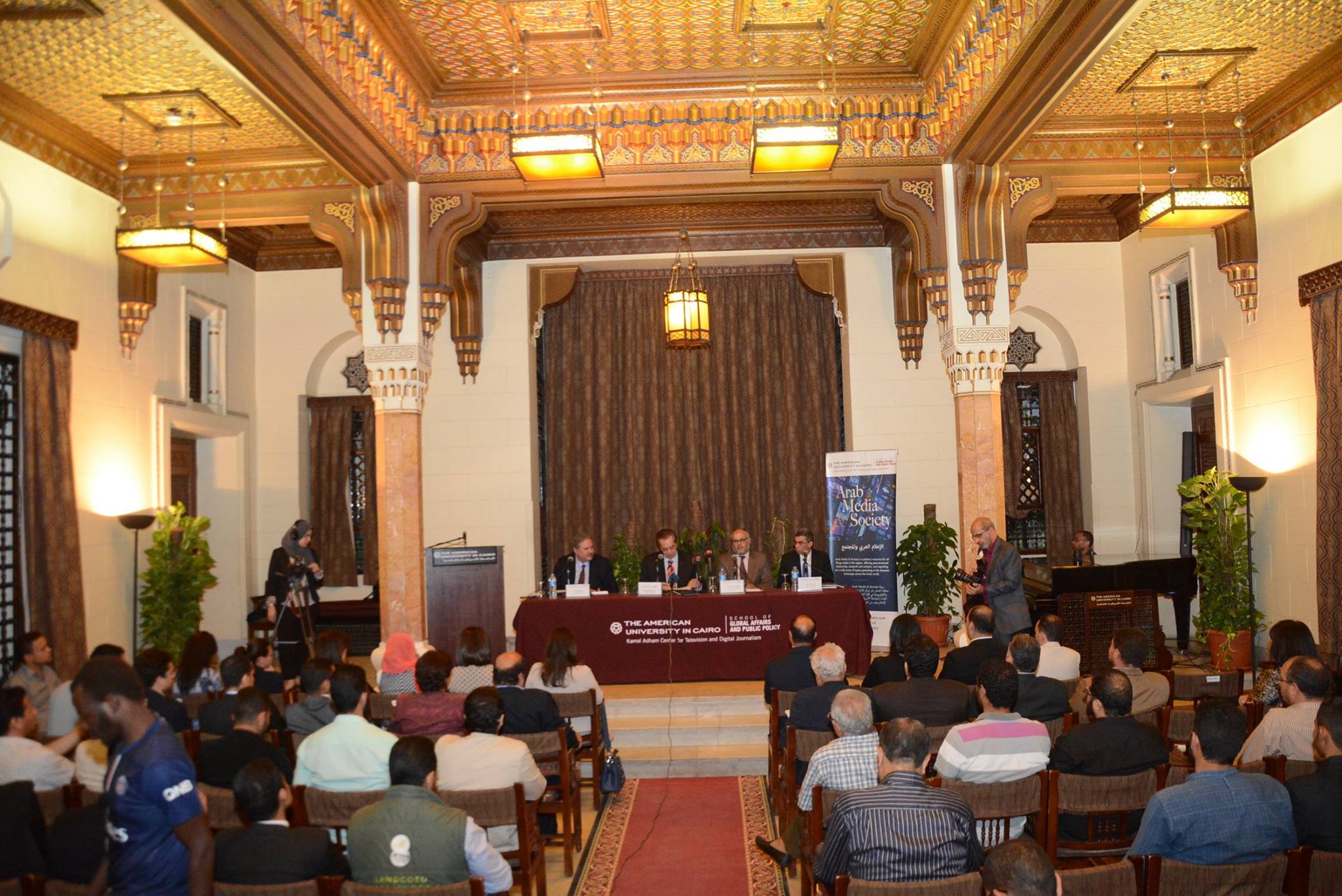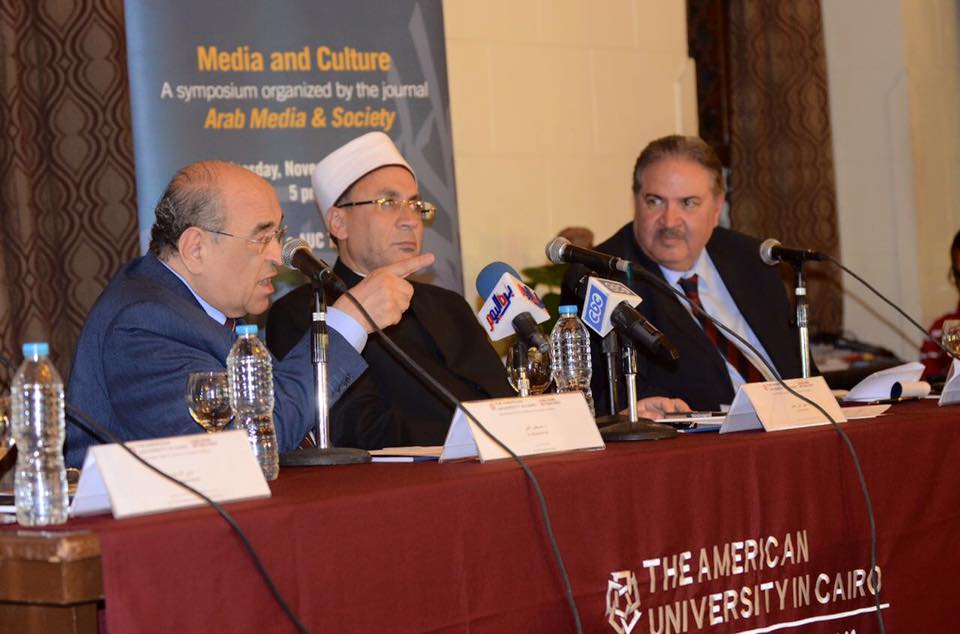Issue 25, winter/spring 2018
https://doi.org/10.70090/HES18RMM
Today’s world faces many conflicts and is impacted by an increasing number of natural disasters. In this climate of turbulence and uncertainty, the role of media in conflict management and peace building is extremely important. With this backdrop, the faculty of Mass Communication at Cairo University organized its 23rd annual international conference on “Mass Media and Conflict issues in the World” this past September.
The conference brought together nearly 60 academics and professionals from five Arab countries to share their experiences, learn from one another, and debate the role of media in conflict issues. Proceedings consisted of lectures, poster presentations, panel discussions, and workshops to allow all participants to engage in practical discussion. It was attended by a wide range of participants with disciplinary foci in both political science and mass communication: Researchers, doctoral students, representatives from media organizations, and other interested parties. Research papers were presented by academics and PhD scholars in several areas of media and conflict.
The main ideas that were shared over the two days are summarized below: The opening plenary speakers included Mohamed El Khousht, President of Cairo University; Makram Mohamed Ahmed, head of the Supreme Council for Media Regulation, Hossam El Gamal, head of the Egyptian Cabinet Information and Decision Support Center at the Egypt State Information Service, Gehan Yousry, Dean of the faculty of Mass Communication at Cairo University; and Prof. Hebatallah E Semary, Vice Dean for Graduate Studies and Research at Cairo University.
The speakers discussed several issues related to conflict in the Arab world, acknowledging that media play an increasingly important role in today’s society and recommending that journalists and editors must demonstrate their professionalism and build credibility and trust in the age of citizen journalism and social media. They agreed that ethical and professional standards are required to improve credibility and maximize the impact and reach of quality journalism. These efforts are more important than ever in today’s digital environment. A special symposium with media professionals from the Egyptian TV News Sector, CBC Extra, MENA, and ONtv Live provided interesting insight into how conflict issues are covered and challenges faced by correspondents operating in conflict situations.
There was discussion about the need to reassess reporting practices and teach media professionals to report in a well-researched and unbiased way. Rather than stoke division, media should contribute to the resolution of conflicts, alleviation of violence, and attainment of reconciliation and peace. Throughout the conference, it was often mentioned that journalists tend to focus on the consequences of conflict rather than causes, and almost never cover solutions.
The closing session included recommendations garnered over the conference period and an award for best paper presented to Dr. Rehab Mohamed Anwar from Minya University. Key recommendations that emerged from conference discussions were the need for increased training for local journalists on techniques and proper comportment when reporting on conflicts in their community. Media institutions should take the necessary steps to ensure their reporting on conflict situations is as impartial, comprehensive, and accurate as possible. The media must report on conflict issues and it is imperative that this coverage comply with expected industry ethical and professional standards.
 Arab Media & Society The Arab Media Hub
Arab Media & Society The Arab Media Hub
